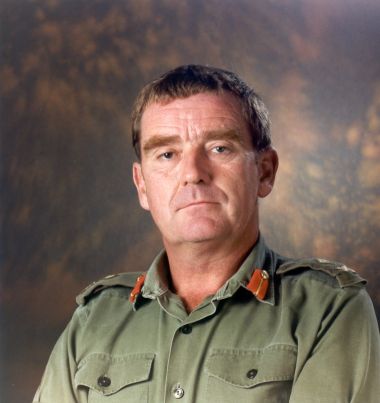Top UK Major General Who Is A Christian Praises Donald Trump's Defence Team

The most senior British officer behind the 2003 US-led invasion of Iraq believes the security, defence and foreign policy team around President Donald Trump is 'potentially more competent all round' than in the previous two US administrations.
Major General Tim Cross, who is retired but is still a defence adviser to the British Government, also accused the British Government of overlooking displaced Iraqi Christians and other minorities, many of whom have been singled out for persecution since the invasion, by channelling aid through Muslim-run organisations.
He said that in meetings with officials from the Foreign Office (FCO) and the Department for International Development (DfID), they 'didn't really want to engage with' with the issue.
Speaking about the Trump administration's new team, he described US Defence Secretary James Mattis as 'a thinking man', able to influence the new president.
A practising Anglican Christian, Cross told Christian Today that Lieutenant General HR Mc Master, the National Security Adviser, who like Cross fought in the First Gulf War, is 'a very good battlefield commander, and a great thinker; he understands that there is this relationship with soft and hard power – you don't just bomb people into submission.'
Mattis has said he favours an 'accelerated campaign' against Islamic State.
McMaster is believed to support a more assertive policy in Syria.
The trio of Mattis, McMaster and Secretary of State Rex Tillerson together made a 'pretty good' team, said Cross.
'It's a return to a more traditional concept of American power and how it's used – a preparedness to engage and lead.'

Regarding the now under-review Executive Order barring citizens of seven Muslim-majority countries, Cross defended Trump for saying the ban was in place 'until we understand what's going on here', saying that in 2003 he and the other planners of the invasion had not sufficiently understood what was going on.
Asked whether he believed Trump's pledge to increase military spending by $54 billion was a responsible use of resources, he quoted John McCain, the Republican chairman of the Senate Armed Services Committee, who argued that this was only a 3 per cent increase compared to spending in the most recent fiscal year, and that the US military was 'underfunded, undersized, and unready to confront threats to our national security'.
Cross said Barack Obama's foreign policy had allowed Russia's influence in the Middle East to increase, for example by not engaging militarily, even after it emerged that President Bashar al-Assad had used chemical weapons against his own people.
He said: 'If you look back at Obama's foreign policy over the years, it wasn't that successful. He's the guy who drew lines in the sand and then didn't do anything about it [when they were crossed]; he's the guy who allowed the void to develop for the Russians to step into.'
He added: 'Putin is not interested in Assad per se, but in maintaining his air and naval bases and exerting influence in the Mediterranean and the region.'
Regarding the Bush administration that drove the 2003 invasion, Cross described the attitude of Defence Secretary Donald Rumsfeld and senior officials around him as 'very naïve'.
Cross, who has publicly criticised the inadequacy of the pre-invasion planning, said: 'Rumsfeld's plan was, "We don't need a plan.' He added that Rumsfeld acted on popular post-9/11 feeling in America to 'do something about these brutal dictators', and assumed Iraqis would be grateful for the removal of Saddam Hussein and 'crack on' with creating their own country. 'There was no plan B, there was no plan C,' he said.
As for now, Cross said it was important that Britain maintained an ability to exert influence in Iraq, such as through providing military training, to prevent an increase in Iranian and Russian influence there. He warned against allowing the country's disintegration, which could further destabilise the region's Sunni-Shia power balance.
Cross was also critical of the UK's engagement with its ally Saudi Arabia, arguing that it should put more pressure on Riyadh to win hearts and minds in Yemen rather than only dropping bombs to quash the Shia-led post-coup government there. Overall, he said, 'I don't think we really understand what it is that we want to do in the region to keep the [Sunni-Shia] power balance in check in a way that's beneficial to us.'
Cross lamented persistent religious illiteracy at the FCO and DfID, where he said an official told him four years ago that Iraq's Yezidi community were Christians, and therefore believed that by aiding Yezidis they had helped Christians. While he said he agreed with the position of the previous Prime Minister, David Cameron – that Middle Eastern Christians should be helped to return home rather than resettle outside the Middle East – he said the British Government needed to acknowledge many were concluding they would never feel able to return. Accepting '50,500 or 5,000' as refugees would not solve the problem of Christians' vulnerability in the region, he said, but Middle Eastern governments such as Iraq's needed to be challenged on the extent to which they were protecting their vulnerable minorities populations.
Abigail Frymann Rouch is a freelance journalist specialising in religious affairs and the Middle East. In her recent MA in Middle Eastern Studies, she focused on the plight of Iraqi minorities since the 2003 invasion.
Find her on Twitter @abigailfrymann











